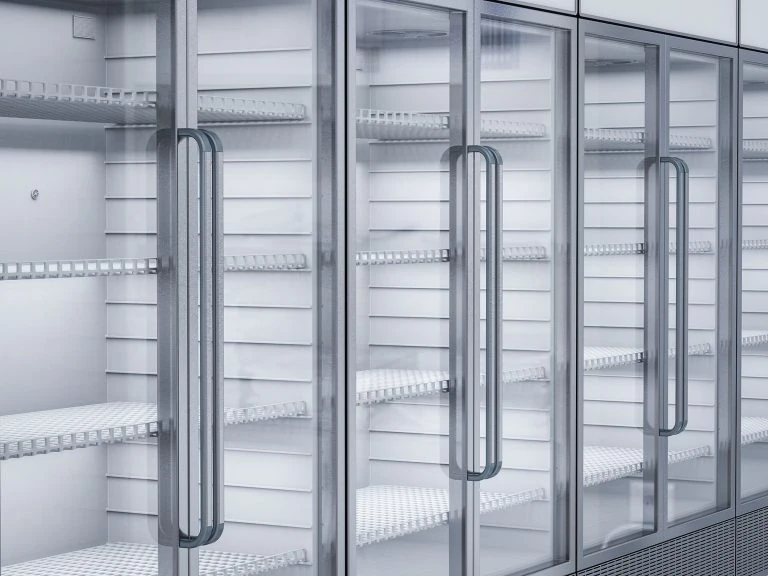
Commercial refrigerators are heavy-duty fridges that are used for storing and cooling at an industrial level. The refrigerant plays a major role in the refrigeration process. It collects heat from inside the fridge compartment and disperses it outside the unit, hence cooling the stored items.
Similarly to domestic fridges, commercial fridges circulate a refrigerant or coolant throughout the unit. Commercial cooling systems collect large amounts of heat from the unit compartment and disperse it outside. The resulting cooling lowers the overall temperature of the fridge’s compartments and in turn, of the items stored as well.
The refrigerant solution is usually in a liquid or gaseous state and keeps interchanging to transfer heat from inside the fridge to the outside. Pressure changes are applied to the refrigerant to increase its efficiency and speed in the circuit.
Commercial refrigerators are mostly used where heavy-duty refrigeration is required. Restaurants, food businesses, supply businesses, cafes, and bars usually have commercial refrigerators. These refrigerators are also used in grocery stores to store meat, milk and dairy products, eggs, vegetables, and fruits. Other industries such as the floral industry and pharmaceutical industry also require commercial refrigeration.
The most commonly used refrigerant in commercial refrigerators is HFC R 143A. This refrigerant is widely used for refrigeration and air conditioning purposes. HFC R 143A is non-combustible, so it cannot catch fire, making it a much safer alternative to other refrigerants. It also has high thermal stability, making it highly efficient. It is also highly cost efficient, and isis non-corrosive and does not damage the cooling pipes.
The coolant known as R404A is also commonly used in the commercial refrigeration industry, as it is both highly efficient, non-combustible, has high thermal stability, and has many properties that make it suitable for commercial use.